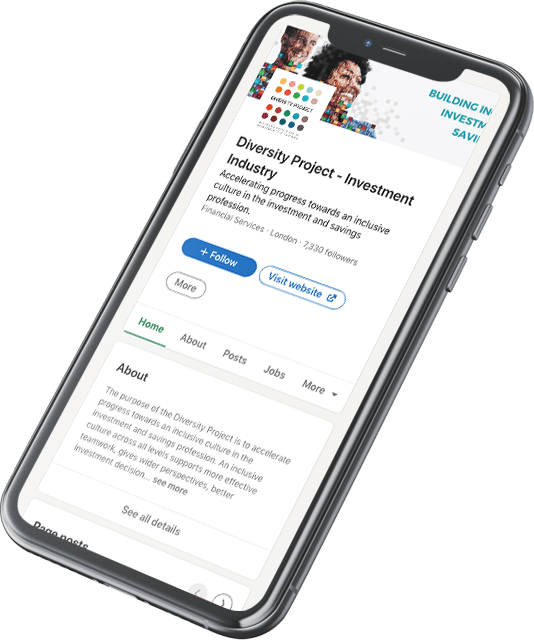Social mobility is a hot-button issue. A recently commissioned government taskforce led by the City of London Corporation, as well as our own relatively primitive origins as a Diversity Project workstream, testify as much. Though far from a new phenomenon, social mobility is a relatively recent entrant to the diversity and inclusion (D&I) debate. Encouragingly, it does feature heavily in our revised Five-year Anniversary targets, placing some ambitious but necessary requirements on member firms.
In order to help educate, inform and spark further debate, we wanted to counterbalance our last interview with 93% Club founder Sophie Pender (a practical innovator within the field), with someone steeped in the academic theory of social mobility.
Sam Friedman fits that bill. He is a professor of sociology at the London School of Economics and a commissioner at the Social Mobility Commission. With a CV that is as long as it is impressive, perhaps his most notable recent achievement is a co-authored book called The class ceiling: Why it pays to be privileged.
The title parallels to gender are deliberate and Friedman regularly reminds readers that the overlapping nature of disadvantage means people often face multiple layers of discrimination. He also reveals how financial support from family, behavioural codes, career sponsorship based on ‘likeness’ or ‘fit’ all play their part in exacerbating the issue.
Social mobility cuts across so many aspects of diversity and inclusion and yet, to date, it has not received the attention it deserves in diversity and inclusion circles. This is curious given both its relevance to the both the moral and business cases for greater diversity. Gut intuition suggests the C-suite in financial services are yet to turn their attention to it. Indeed, if the recent Women in Finance Charter survey is anything to go by – where only 15 of the 200 plus companies said they collect socioeconomic background data – then we still have a very long way to go in the investment savings industry, and beyond.
This urgently needs to change and Friedman offers a thoughtful take on how we should frame the core issues.
How much of socioeconomic background is determined by economic (wealth), as opposed to social and cultural factors?
There are various ways of approaching this. As your question implies, I’m influenced by Pierre Bourdieu’s understanding of social class which states that we have these stocks of capital: economic, cultural and social. He puts economic at the top, then cultural – and social capital is much less important in his theoretical model.
One of the reasons economic and cultural capital are so important is because they link to class being reproduced generationally. Where it gets interesting is how this happens.
Even though the fact economic transfers (i.e. via the Bank of Mum and Dad) take place is obvious, the specifics are rarely talked about – making it hard to ascertain the true extent and nature of the problem. However, we also found that in lots of different types of careers a less tangible insulating notion that support is there if there needed. So regardless of whether a transfer takes place or not, the hypothetical and unconditional support offers a kind of psychological luxury to take certain risks that often have long-term payoffs.
Bourdieu argues that social capital can also be inherited because certain dispositions are inculcated in your early life. The way we speak, our accent, the way we hold our body, and the way we present ourselves are, quite literally, passed onto the body – and all are done so in ways that are connected to the class groups we were brought up in.
But Bourdieu is also interested in how parents from different class backgrounds introduce their children to culture, and help them to look, listen and think about culture in specific ways. The point for him is that this transmission of cultural capitalism is connected to class reproduction because we tend to see those forms of as markers of merit, intelligence and sophistication.
Bourdieu’s main contribution, however, is to make us question all of this. To ask: Are they really markers for these things? If we take a step back and think philosophically, why is classical music more valuable than Love Island? Or why is a received pronunciation (RP) accent more valuable than a regional one. There really is no valid reason for that, and yet it is a hugely powerful force in society.
So in your model, influenced by Bourdieu, social capital is the least important. How come? What about things like nepotism and the power of social networks?
Lots of people have made that argument. To be clear, I think social capital is still really, really important. It comes back to this issue of how class is reproduced intergenerationally and, of course, social capital and contacts can be passed by your parents.
However, if you think about the way that we operate in society now that type of nepotism is, although it may still happen in places, no longer socially acceptable. Instead, we find that career sponsorship is more important for how social capital operates. So, rather than out-and-out nepotism, connections are often made between people at work.
We found that those networks have a sort of glue to them. When people are in senior gatekeeping positions, they often feel affective energy towards their protégés. This can be to such a degree that they go out their way to advocate and literally sponsor their career.
But the interesting point relates to the ingredients it takes for that network connection to be made in the first place. In my research, it is actually not parental in most cases. Nor is it work performance. It usually comes back to cultural capital; a sort of a spark of cultural similarity. There may be a shared taste, humour or lifestyle orientation and that becomes the initial spark which transforms the everyday working relationship into a bond that might be worthy of sponsorship. This clearly highlights the many ways that cultural capital is implicated in social mobility and, for Bourdieu, how different types of capital are converted.
What are the key questions employers and organisations need to ask to accurately capture socioeconomic background? Can it be accurately measured by just one question?
Firstly, it is important to distinguish between origins and destination. What we are talking about here relates to equality and diversity in terms of origins – i.e. how does your socioeconomic starting point in life structure your potential opportunities?
The guidance we have currently, as laid out by the Social Mobility Commission, is that there are three or four main questions you should ask. And if you only have room for one, you should ask for parental occupation (main household earner) at age 14 as it is the best single proxy because it tells you a lot about economic and cultural capital.
But, where you can, you should also ask extra questions and use your analysis to cross reference, and find the nuances in your workforce, along the different axes of socioeconomic origin.
Interestingly, the civil service also asks a self-assessment question. Everybody thinks of their upbringing and background slightly differently and so I think there is a need for both an objective lens in terms of measurement and a more subjective one that captures their own sense of socioeconomic identity.
To what extent does socioeconomic status overlap with other diversity traits and what, if anything, does this mean for tackling it?
Unfortunately, different types of diversity characteristics tend to either be siloed by organisations or, even worse, played off against one another in a kind of Inequality Top Trumps which is massively unhelpful.
What I would stress is the relationships between these characteristics are complex, but in many cases they intersect. People at the intersections of marginalised categories often face double or triple forms of disadvantage and, in our analysis, you can see that quite clearly in terms of pay. For example, women from working class backgrounds face a clear double disadvantage which is greater than the class and gender pay gap put together.
Some of the work I’ve just finished doing at the civil service shows the way this plays out in the workplace. There’s this big difference between how comfortable people feel sharing and displaying markers of their background. White men – not always but often – are quite proud of their working-class backgrounds and even (in the civil service, anyway) use it as a form of brand difference that can be helpful to their careers.
However, almost universally women from working-class backgrounds actively conceal their backgrounds at work and a key part of why they do this is because there is more stigma attached (a lot of sociological literature backs this up). For example, there is no female equivalent of the plucky ‘working class boy done good’ story. The romanticised images we have of working class-ness are often rooted in a very masculinised industrial past.
Similarly on ethnicity, different ethnic categories and groups in the UK have very different class compositions. On average, the British Indian and Chinese populations are far more privileged than the white population, whereas the Bangladeshi and Pakistani communities are much more disadvantaged in terms of their socioeconomic background.
We really need to understand all these nuances. But a key takeaway is that class privilege doesn’t necessarily work in the same way for non-white people; they don’t get the same following wind from it in the workplace.
Relative to other diversity characteristics, how much does socioeconomic background play a role in diversity of thought and therefore the business case for improving social mobility?
I am less of an expert on this. There is some interesting sociological literature that argues quite clearly one of the payoffs to having a higher representation of people from working-class backgrounds in leadership positions is they tend to have a more of a communitarian or collective ethos. The inference is that their management styles tend to be rooted in experience of socioeconomic hardship or disadvantage and so they cultivate more tightknit communities. I don’t think there is enough evidence to be able to claim this with any real confidence, but it is an interesting line of argument.
A different way of thinking about this is to think of gatekeeping positions. Television commissioners or civil service policy, for example, are professions where many people’s job is to produce things that tell us about what our society looks like (or, at least, should) – whether that be via a television programme or a social policy. It is important that these people are framing things in the most representative way possible.
However, it’s not as clear cut to me precisely what the payoff really is. And, to be perfectly honest, as a sociologist the business case for diversity is something I less engaged with as a concept. I’d love to give you a ream of data points but it’s very hard to quantify. I know that Andy Haldane, the chief economist at the Bank of England, is looking at this as part of the City of London Corporation-led taskforce on social mobility so I will watching out for the productivity analysis that comes out of that.
You refer to self-censorship/elimination in your book. This has echoes of the ‘internalised discrimination’ commonly associated with racial inequality. To what extend do you think people from lower socioeconomic backgrounds create mental limitations of what they are capable of, and how much of the class ceiling can be explained by this?
This is a very reductive way of thinking about the whole issue. The argument tends to go, ‘We just need make people more middle class, more confident, and so on’.
Notions of ambition or confidence are very context dependent and are about how you feel in certain contexts. Lots of people who feel, or are perceived as, under confident in the workplace or not very ambitious, are perfectly confident in lots of other areas of their life. This could be for many reasons, but navigating behavioural codes and a cultural sense of not quite ‘fitting’ are obvious barriers.
Often, this carries with it quite a large emotional burden. But the complexities are even stronger when it comes to social mobility because those individuals also tend to be battling a sense of guilt or betrayal about abandoning their origins; their families, their friends, and their culture. They can feel culturally homeless, caught in between two worlds.
So part of why people from working-class backgrounds are not clamouring for promotions and leadership positions is actually because to do so compels them toward a kind of identity mutation, which has significant psychosocial implications. And so, decisions to stay where they are, to not migrate to London for example, are more complicated than simply a lack of ambition or a lack of confidence. Understanding this is important because, in an ideal world, progression should not be contingent on the type of cultural fit that favours privilege class backgrounds over all others.
A final word and ten recommendations
Friedman makes a compelling and nuanced case for tackling social mobility. He urges for those working in elite occupations (i.e. finance) to interrogate the so-called ‘objective’ measures of merit they rely on and to “think carefully about whether such measures have a subjective, or performed dimension”. He also urges policymakers to take direct and urgent action to tackle the class ceiling and believes class pay gap reporting should become mandatory.
Helpfully, at the back of his co-authored book he lists out ten recommendations for employers that he and Daniel Laurison devised in conjunction with The Bridge Group (a social mobility research charity).
- Measure and monitor class background
- Find out whether your organisation has a class ceiling
- Start a conversation about talent
- Take intersectionality seriously
- Publish social mobility data
- Ban unpaid and unadvertised internships
- Senior champions are necessary but not sufficient
- Formalise the informal (specifically referring to work allocation, promotions and progression)
- Support those who want it (referring to self-elimination and censorship)
- Lobby for legal protection







